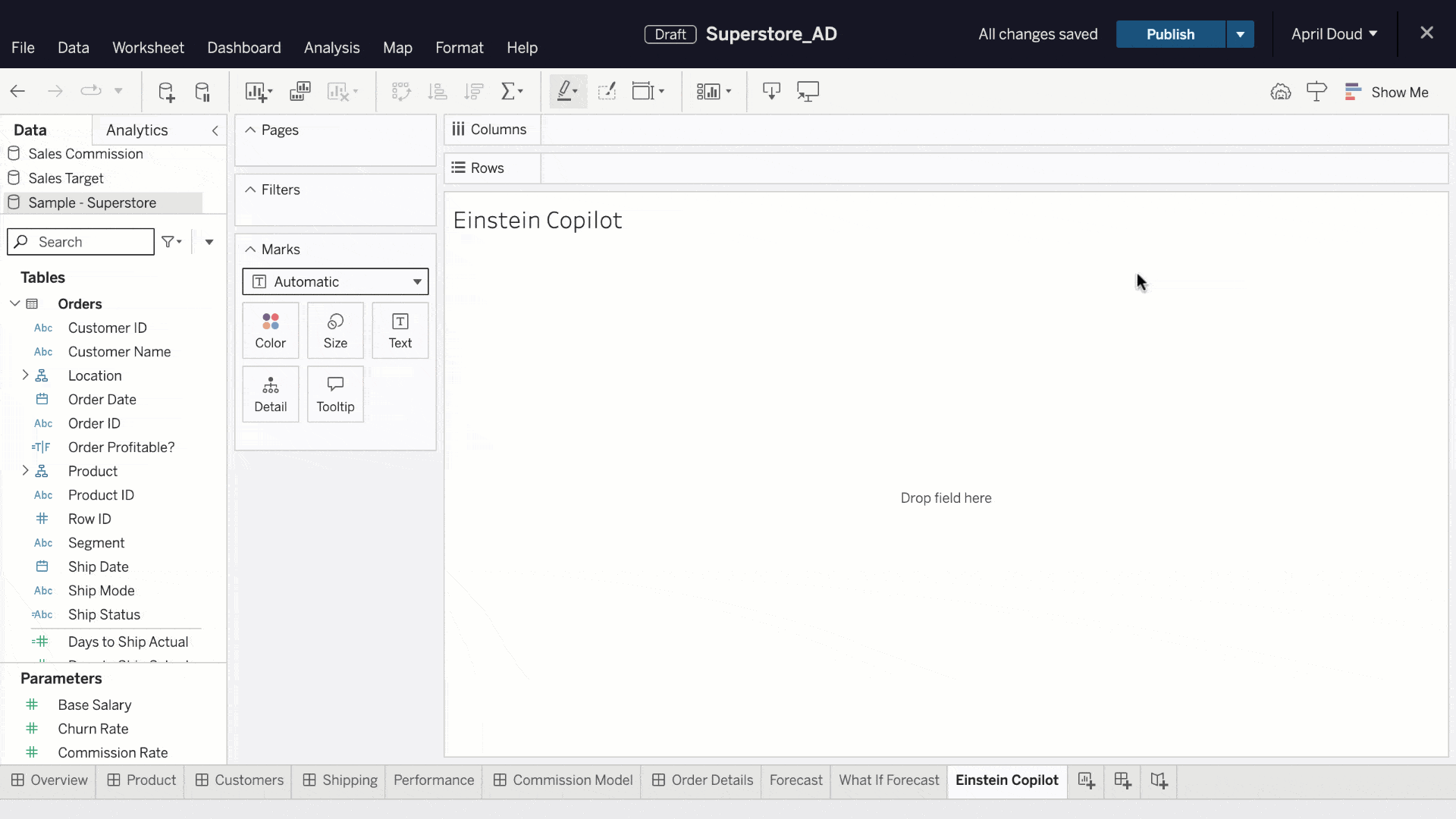Salesforce announced the beta availability of Einstein Copilot for Tableau, a new capability designed to provide users with self-service analytics, streamline analyst workflows and unlock strategic data insights for users within the entire organization.
Einstein Copilot for Tableau seeks to enable practitioners to dive deep into their data and utilize Tableau’s analytical engine through natural language processing to query and derive insights from data sources like spreadsheets, cloud and on-premises data warehouses and Salesforce Data Cloud. According to Salesforce, the new solution makes data analysis accessible to every business user and even suggests questions to users based on business data and metadata analysis.
Einstein Copilot for Tableau also leverages the Einstein Trust Layer, which reportedly gives business and data teams robust tools to help protect data and limit exposure to third-party models. Specific features include:
- An automated data analysis to recommend relevant questions and guide the user to potential areas of insight;
- Conversational data exploration, which allows users to search for an insight without losing the context of their previous question; and
- Guided calculation creation to help users parse through information from a longer string field.
“Every employee, in every function, must develop fundamental data skills to be successful in the modern enterprise,” said Ryan Aytay, CEO of Tableau, in a statement. “Einstein Copilot for Tableau streamlines that skill development, helping anyone become experts at understanding data, and enables everyone in the business to surface insights more quickly with trusted AI. Now everyone’s a data expert!”
News Flashback
As organizations in every industry search for more efficient processes and better decision-making tools, they’re asking their teams to use new tools that leverage AI. With that in mind, Salesforce recently enhanced its Service Cloud offering with new AI capabilities that include:
Einstein Conversation Mining
Conversation mining is designed to aggregate and analyze conversation data to help users understand the common reasons customers reach out across voice, messaging and third-party apps.
Generative Knowledge Creation; Knowledge-Powered AI & Voice
While tracking conversations, one of the new capabilities seeks to automatically generate new knowledge articles based on the data from closed customer conversations and cases. Once a new article is created, it can be reviewed, edited and posted to a company’s internal knowledge base.
Generative AI Survey Summarization
Finally, supervisors can use generative AI to help identify and sort trends and root causes of low customer satisfaction scores in a dashboard or report. From there, the technology seeks to enable agents to proactively follow up with personalized communications that address the issue(s).







